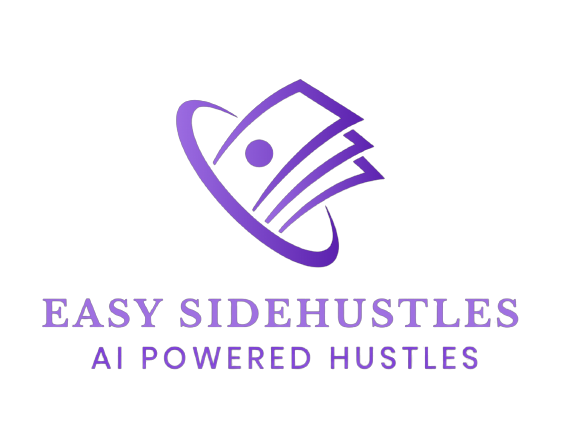How AI Tools are Revolutionizing Talent Acquisition
Introduction:
The world of business and recruitment has undergone unparalleled transformations in recent years. One of the most significant game-changers has been the introduction of Artificial Intelligence (AI) tools in talent acquisition. While traditional hiring methods have relied on manual processes and human judgment alone, AI tools have brought in a new wave of efficiency, accuracy, and productivity. In this article, we will explore how AI tools are revolutionizing talent acquisition and how they can be harnessed to streamline workflows and enhance recruitment outcomes.
1. Understanding AI in Talent Acquisition:
a. Breaking Down AI:
Artificial Intelligence, in the context of talent acquisition, refers to the ability of computer systems to perform tasks that would typically require human intelligence. These AI tools utilize algorithms and machine learning techniques to analyze vast amounts of data and make actionable recommendations. By leveraging AI, recruiters can now access talent pools worldwide, analyze large datasets, and make informed decisions in a fraction of the time.
b. Advantages of AI Tools:
AI tools offer several advantages in talent acquisition, revolutionizing the way recruitment processes are conducted. Some of these advantages include:
1) Enhanced Efficiency: With the help of AI tools, recruiters can automate repetitive, time-consuming tasks such as resume screening, pre-screening interviews, and candidate matching. This allows recruiters to focus on more strategic aspects of talent acquisition, leading to improved efficiency and productivity.
2) Greater Accuracy: AI tools are capable of analyzing large volumes of data with precision, eliminating human bias and errors in decision-making. By selecting candidates based on objective criteria, organizations can ensure fair and unbiased hiring practices.
3) Expanded Reach: AI tools enable recruiters to tap into a global talent pool. With the ability to analyze resumes, job boards, and social media platforms from around the world, organizations can find the best-fit candidates regardless of geographical boundaries.
4) Improved Candidate Experience: AI tools can enhance the candidate experience by providing personalized communication, updates, and feedback throughout the recruitment process. This leads to higher engagement, satisfaction, and greater chances of securing top talent.
2. The Role of AI Tools in Each Stage of Talent Acquisition:
a. Sourcing:
AI-powered tools assist recruiters in sourcing candidates from various channels, including job boards, social media platforms, and professional networks. By scanning resumes and profiles, these tools can identify individuals who match the requirements of the job description, saving valuable time and effort.
b. Screening:
Resume screening is a critical step in the recruitment process, but it can be time-consuming when done manually. AI tools can quickly scan through resumes, extract relevant information, and match candidates against predefined criteria. This helps streamline the screening process and ensures that only the most qualified candidates move forward.
c. Interviewing:
AI tools offer solutions that transform the interviewing process. Automated interview tools can conduct video interviews and analyze candidate responses, facial expressions, and vocal tones. This enables recruiters to gain deeper insights into candidates’ suitability and cultural fit, even before scheduling in-person interviews.
d. Selection:
With the help of AI tools, recruiters can develop predictive models that identify the likelihood of a candidate’s success in a role. By analyzing past hiring data and performance metrics, recruiters can make more informed decisions during the selection process, reducing the risk of bad hires and maximizing the chances of finding the best fit.
e. Onboarding:
AI tools also play a vital role in the onboarding process by automating administrative tasks, providing personalized training modules, and facilitating smoother integration into the new work environment. This ensures a seamless transition for new hires and enhances their overall experience.
3. Considerations and Challenges When Implementing AI Tools:
While AI tools offer immense benefits in talent acquisition, organizations must be aware of certain considerations and challenges. These include:
a. Data Privacy and Security:
As AI tools rely heavily on data analysis, organizations need to ensure that data privacy and security measures are in place. Compliance with regulations such as GDPR is crucial to protect candidates’ sensitive information.
b. Bias and Fairness:
AI tools need to be trained and monitored to avoid bias, ensuring fair and inclusive hiring practices. Regular audits and assessments of the algorithms used in these tools can help address any potential biases.
c. Integration and Training:
Implementing AI tools in existing recruitment processes requires proper integration with existing systems and tools. Additionally, training recruiters on effectively using these tools is essential for seamless adoption and optimal utilization.
Conclusion:
AI tools have undoubtedly revolutionized talent acquisition, empowering recruiters to streamline their workflows, make data-driven decisions, and achieve better recruitment outcomes. The advantages offered by AI tools, such as enhanced efficiency, greater accuracy, expanded reach, and improved candidate experiences, have made them indispensable in today’s competitive job market. As organizations strive to attract and retain top talent, harnessing the power of AI tools will be the key to maintaining a competitive edge in talent acquisition. Explore the possibilities, embrace innovation, and unlock the true potential of AI tools in your recruitment strategies to take your talent acquisition processes to new heights.


